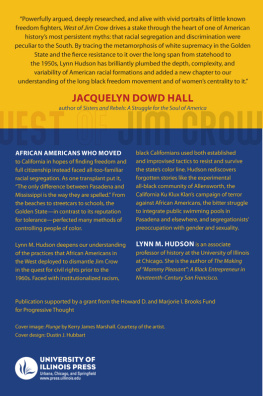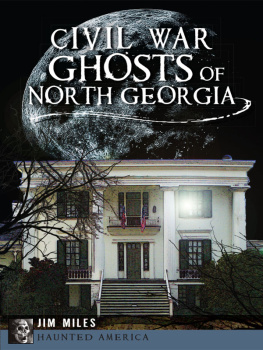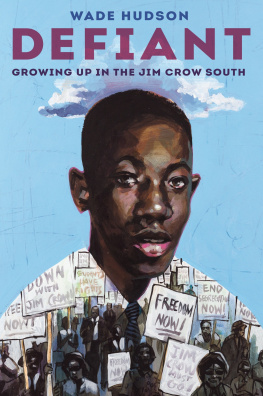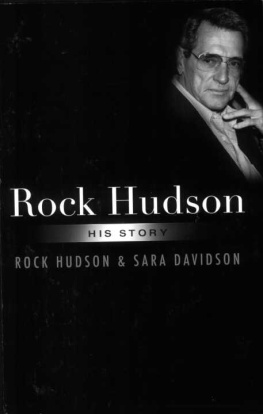Working for Equality
Working for Equality
THE NARRATIVE OF HARRY HUDSON
Harry L. Hudson
EDITED BY
Randall L. Patton
2015 by the University of Georgia Press
Athens, Georgia 30602
www.ugapress.org
All rights reserved
Designed by Kaelin Chappell Broaddus
Set in 10.25/13 Ehrhardt MT Regular by Graphic Composition, Inc.
Printed and bound by Thomson-Shore, Inc.
The paper in this book meets the guidelines for permanence and durability of the Committee on Production Guidelines for Book Longevity of the Council on Library Resources.
Most University of Georgia Press titles are available from popular e-book vendors.
Printed in the United States of America
19 18 17 16 15 C 5 4 3 2 1
Library of Congress Cataloging-in-Publication Data
Hudson, Harry L., 19252003.
Working for equality : the narrative of Harry Hudson / Harry L. Hudson ; edited by Randall L. Patton ; foreword by Gavin Wright.
pages cm
Includes bibliographical references.
ISBN 978-0-8203-4800-1 (hardback) ISBN 978-0-8203-4838-4 (e-book)
1. Hudson, Harry L., 19252003. 2. Lockheed-Georgia CompanyEmployeesBiography. 3. African American supervisorsGeorgiaBiography. 4. African AmericansGeorgiaBiography. 5. Discrimination in employmentGeorgiaHistory20th century. 6. African AmericansGeorgiaSocial conditions20th century. 7. Civil rightsUnited StatesHistory20th century. 8. United StatesRace relationsHistory20th century. I. Patton, Randall L., 1958- II. Title.
HD9711.U63L6485 2015
331.762913334092dc23
[B]
2014040841
British Library Cataloging-in-Publication Data available
Dedicated to all the people who were co-workers and business associates over the years who have passed over the end of the last runway.
Dont stand behind the fan (jet that is).
H. L. HAP HUDSON
Contents
Foreword
Randy Pattons discovery of Harry Hudsons memoir is the historians dream. In the course of conducting interviews for a study of racial integration at the Lockheed plant in Marietta, Georgia, Pattons inquiries prompted Hudsons family to rummage through long-forgotten boxes in the attic. One of them contained a real prize: an eyewitness account by a frontline participant in the revolution in workplace race relations that transpired from the 1950s to the 1970s.
Having studied the civil rights era from the standpoint of economic history, I can testify to the rarity of Hudsons manuscript. The civil rights movement is rich in historical narratives and memoirs, supplemented by superb oral history collections at universities all over the South. By comparison, the business and employment chronicles are relatively thin. Once the political tide had turned, employers were understandably reluctant to acknowledge their pre-integration racial practices, and most new black workers were not practicing writers documenting their experiences. In this setting, a first-person account by a racial pioneer whose narrative is both observant and articulate is worth its weight in gold. Adding to its value, Hudsons employment history stretches back to the early 1950s, when everything was black or white and not gray in between, and few could have anticipated the epochal changes of subsequent decades.
Hudsons story bristles with gripping moments: the early altercation with the egotistical but ignorant new boss Mr. Hal, who was determined to prove to some of those halfass characters from California that he could handle Negras; the confrontation with the great Sam over Hudsons advice to two white office workers to stay away from an Atlanta jazz club for their own protection; the black man with graduate training in psychology assigned to drilling holes and shooting rivets; Hudsons skeptical response to an invitation to take part in an experiment to determine whether a Negro could supervise a mixed crew in the South without friction. In each of these episodes and others, the reader may suspect that we are hearing only one part of a more complex story. But what we do hear comes from an on-the-ground source and has the ring of heart-felt authenticity. Hudson was making history and wanted to leave a record of his experience for posterity.
One might wish for a better storybook ending to Hudsons tale, for more of the feeling of ultimate triumph that Michael Honey found in his Memphis interviews with retired black workers in Black Workers Remember (2002). But perhaps it is fitting that the concluding pages express a complex mixture of feelings: on the one hand, Hudsons pride in his accomplishments and, on the other, resentment that he did not get the promotions he felt he had earned. Both of these perspectives are part of the larger and still ongoing national narrative. At least Harry Hudson received well-deserved recognition from corporate and civic leaders at his retirement and could say that in the end the good overruled the bad.
We can now be grateful to Harry Hudson for keeping this journal, to his family for preserving and unearthing it, and to Randy Patton for bringing it to a wider reading public.
Gavin Wright
Stanford University
Preface
When I went to work for the Lockheed-Georgia division in September 1952 I had no idea that this would end up being my lifes work. I thought that I would be there for about three years at the most. The war in Korea was going full bloom and when it came to a close then that would be the end of that job. I was wrong.
For some reason I decided to keep a record of my employment. These documents grew with the years. After about five years I started to make tapes and type up memos. I did not save anything that could not be considered my personal records. I saved just about everything in writing that reflected on me. As the years rolled by my records grew, most of the tapes dry-rotted, but my notes and the other documents remained intact. I finally had two boxes full of material. I collated the information and decided that I would try and write a book. As I went over my material I found myself able to project back into that timeframe and my memories became very clear. I feel that 90 percent of the actual statements made by others as indicated are verbatim.
I sat down and began to talk out the story and came to the conclusion that this book would be a narrative. The documents I had accumulatedwork reviews, training certificates, cost-saving awards, and miscellaneous correspondencehelped me reconstruct my experiences. I have included some examples of these in the narrative. The experiences related here represent only a few of the thousands I lived through during those years. I tell them as I lived them. I dont bite my tongue in relating incidences as they occurred. This narrative is about me, myself, and I. My opinions were developed from these experiences and I will not hold back on expressing those opinions. Some words seemingly profane are simply aircrafters language expressing emphasis. This method of emphatic expression is found at all levels in all industry around the United States and the world. I can say that from experience. Ninety percent of the time there is nothing personal in the use of such words.
If there is any social significance to this narrative it will have to be the gradual reduction of discrimination over the years (appearance, skin color, and so-called races) and the economic uplift that an organization such as Lockheed provided for the community. Technologically, things have advanced so far that at present younger workers of today would wonder how we did most of the things that we accomplished. I do not feel satisfied with the changes that younger gung-ho managers have initiated. From what I hear the attitudes and morale levels have dropped sharply because of a feeling of insecurity. The workers seem to have a feeling of constant intimidation. In my opinion this goof called downsizing is going to explode all over the economy by the turn of the century. So be it, this is another generation.






